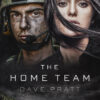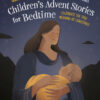Chat with Author
James Hannibal
Greetings from Sarah Sundin! Today I have the honor of interviewing novelist James Hannibal, one of our newest CAN members. A graduate of the US Air Force Academy, James has flown both fighter aircraft and the Stealth Bomber—and has done covert work on the ground! So he knows what he’s talking about when he writes thrillers.
Welcome, James! Please tell us about your book The Paris Betrayal.

The Paris Betrayal is a “spy left out in the cold” story. To restore his name and stop an attack, Ben Calix must find the sniper who tried to assassinate him, the doctor who saved him, the spymaster who trained him, and the man who killed the woman he loved.
That sounds amazing! What inspired you to write this book?
One day in Sunday School, my mind drifted. I know. I should have been listening. But we were deep in the book of Job, and in that book, the mind wanders. Anyway, it occurred to me that this was a “spy left out in the cold” story. Job feels betrayed. He’s been turned out of God’s grace, so he thinks, and he doesn’t understand why. The friends he seeks for help don’t have an understanding of the Creator’s ways. None of us do. And they give him poor answers. The Paris Betrayal is not strictly allegorical, but that story of a man coming to grips with his own place in the world and the sovereignty of his Creator (or spymaster) is what I tried to capture. I also had fun recreating Job’s friends as members of Ben’s elite covert operations world.
I’m glad I’m not the only one who takes story notes at church. Ahem. So how has God used the message of your book in your own life?
When COVID-19 struck, Cindy and I had just started a new business creating games and stories for use in discipling Christians. This is the same fantasy world in which my next upcoming novel Wolf Soldier lies. We experienced a loss of income in one of my jobs, income which was supporting the new business. We cried out to God, “Why would you do this?” But I was working on The Paris Betrayal at the time, studying Job. We realized our error in questioning Him and repented. Within hours, orders for one of our games started pouring in. Long story short, God had used a well-thought-out review by an atheist in the game community to generate enough sales to keep us going for a year. He is so good.
He is indeed. With such an exciting story line in your novel, you must have some incredible scenes. What was the hardest scene to write?
Ben’s frozen lake scene was the hardest for me. I had to get the details right for surviving a fall through the ice, complicated by the fact there for a spy, there’s no help, no paramedics to call once you’re out. But I also had to capture the agony and delirium that accompanies frostbite and hypothermia. Having experienced some of that on a small scale in the past while working as a survival instructor and battalion air liaison officer, it was painful to relive. It also hurt to put my beloved character through it.
Those painful-to-write scenes are the richest to read.
What themes do you return to again and again in your writing?
I love London, so I see a lot of stories turning up there. Of course, you can’t throw a stone in London without hitting some incredible piece of history. I also see forgiveness showing up. God’s grace is so incredible, it has to be shared. Maybe I don’t speak about it in day-to-day life enough to meet that need, and so His forgiveness and our need to forgive each other crops up—often unexpectedly—in my writing.
Why do you love writing?
I always wanted to write and to be that person telling the story in the light of the campfire. As a kid, I checked a seek-and-find book out of the library. On the center spread, the artist had drawn a fair in a grassy vale with tents, colorful guests, and a juggling jester, but my eye went straight to a little boy peeking out from the edge of the forest, watching it all. I felt the boy wanting to know the stories of all those people at the fair, especially the jester. I wanted to know their stories too. And I knew, even then, if I wanted to know their stories, I’d have to write them myself. I’ve been working at it and loving it ever since.
I love that! Now, you’ve done a lot with your life. Do you still have an unfulfilled dream?
Racing flying cars. Hopefully I will remedy that soon, but I’ve got to lose some weight. No joke.
What ministries are you involved in, and why?
Lightraider Academy is our family’s ministry, and it is the focus of God’s calling for me to use my artistic skills for His purposes. He’s been incredibly clear on that point. The Lightraider world is a fantasy world from the 1980s that we took over. Today, it has two sides and two functions. On the one side are games and the other are stories and books. These two “sides,” of course, cross paths, especially since the games are story-based. The two functions are evangelism and discipleship. Too often, Christians attempt to use evangelistic tools for discipleship and vice versa. Did a parent or mentor ever say, “Use the right tool for the right job?” Same concept. Through Lightraider Academy we hope to create distinct tools for each job.
It seems obvious that you have talents aside from storytelling—any more talents you’d like to share?
I was pretty good at catching bad guys for a time, but those days are past. Nowadays, I’m not bad with digital art programs, including CAD, and I’m getting better at 3D printing. I’ve also learned how much math goes into good board game development.
Do you have a “day job” or a previous career? Does it influence what or how you write?
I studied the Middle East and counterterrorism at the US Air Force Academy. I went on to fly a fighter aircraft that had me doing occasional ground work with international special forces groups. After that, I flew the Stealth Bomber, which also included all sorts of fun, non-flying extracurricular activities, and then Predator drones. I’ve worked undercover, and I’ve hunted (and found) snipers in a combat zone. All that experience in tactical and secret worlds gets poured into my novels—enough that the first three had to be reviewed by multiple security committees before publication.
I’ve had lots of kinds of edits, but never a security edit. Well. You certainly have a lot on your plate. Please tell us about your next project.
Wolf Soldier is a young adult fantasy set in a world first created for a 1980s Christian adventure simulation (similar to a role-playing game). The Keledan Assembly has stopped sending knights of the Lightraider Order into Tanelethar to rescue those oppressed by the dragons. By pulling back within their borders, they’ve let evil fester at the gate, and now it encroaches on the land. A new class of lightraider knights must train fast and set out across the mountain barrier to find a hidden portal before a full-scale invasion destroys their home.

That sounds incredible! And thank you, James, for a fascinating interview.
To learn more about James and his books, please visit James’s website.
Writing for Him,
Sarah Sundin



